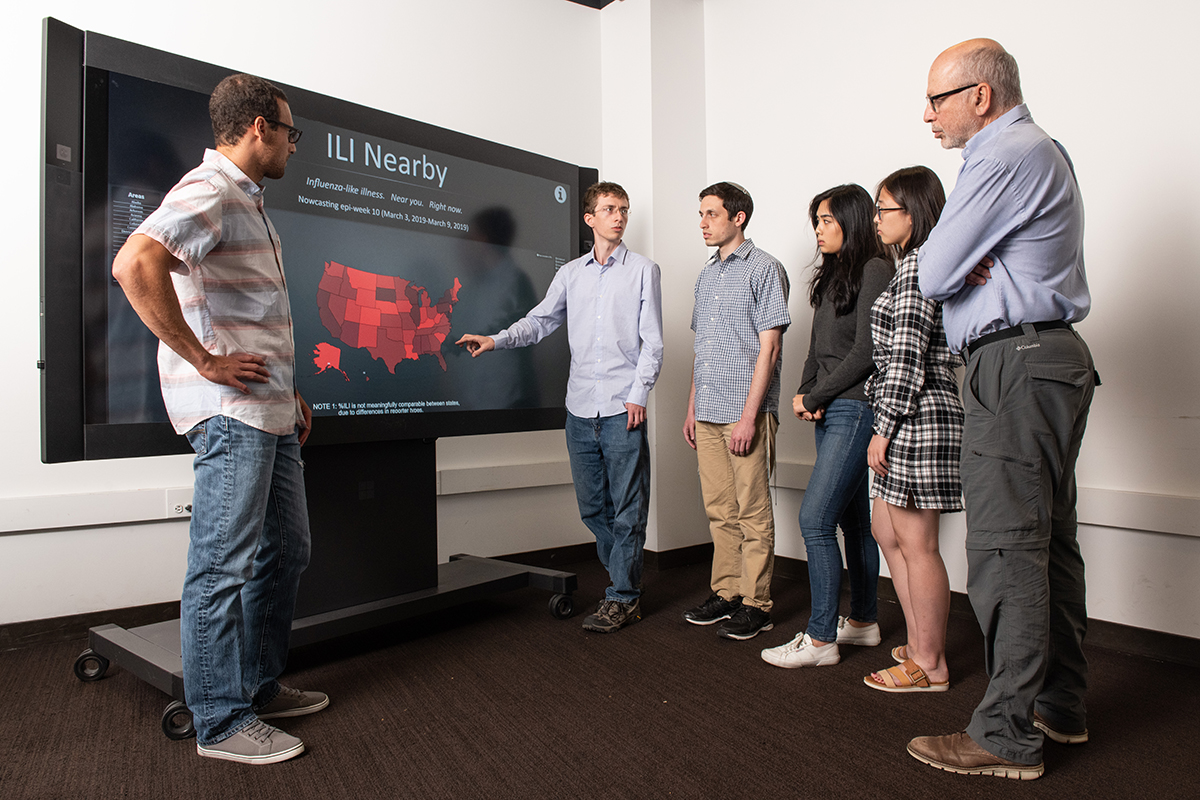Carnegie Mellon Extends Forecasting of Flu-Like Illness Rise of COVID-19 Cases Prompts Request From CDC
Byron SpiceMonday, March 9, 2020Print this page.

The flu season peaked weeks ago and the Delphi Research Group at Carnegie Mellon University normally would plan to halt its national and regional forecasts of influenza-like illness by the end of May.
But this is no ordinary disease season. At the request of the Centers for Disease Control and Prevention, the CMU researchers will continue their forecasts into the summer as the nation braces for the spread of the flu-like COVID-19 illness, caused by a new strain of coronavirus officially known as SARS-2-CoV .
"We likely will see another wave of influenza-like illness in the coming weeks or month," said Roni Rosenfeld, leader of the Delphi group and head of CMU's Machine Learning Department. Delphi is one of two Influenza Forecasting Centers of Excellence designated last year by the CDC.
In contrast to the CDC's weekly flu surveillance reports, which are based on past visits to doctor's offices and clinics, flu forecasts attempt to estimate the current level of disease around the country and to predict how that will change in the weeks and months ahead.
Rosenfeld said he and his team will use the same methods to forecast COVID-19 illness as they do for the flu: one that uses statistical machine learning to make predictions based on past patterns, and a second "wisdom of the crowd" method that bases its predictions on the aggregate judgments of human volunteers who submit weekly estimates.
Both methods have proven themselves in past flu seasons, often besting those of other research groups that are part of CDC's forecasting research network. Whether either will be accurate in forecasting the spread of COVID-19 is anybody's guess at this point, Rosenfeld said.
"The wisdom of the crowds method might be useful for this novel coronavirus, given that it's based on the collective wisdom of people, who are good at adapting to previously unseen circumstances," he said. But he has his doubts about the statistical method, as it depends on large amounts of data from previous seasons. Because the SARS-2-CoV virus is new to human populations, it is likely to cause a starkly different epidemic wave than seasonal flu.
Rosenfeld emphasizes that it will be hard to draw any conclusions from a single season of forecasting for COVID-19 illnesses.
"It will be difficult to know whether your forecasting method is reliable," he explained. "Because after this season is over, we will know whether the forecast was accurate or not, but we will not know if we were lucky or unlucky. You could be accurate because of luck, you could be inaccurate because of bad luck. You cannot draw many conclusions from a single season."
The flu usually subsides by the end of May in North America, but researchers don't know whether COVID-19 will abate as the weather warms. That's why the CDC has asked researchers to continue their efforts into the summer and beyond, Rosenfeld said.
The forecasting center of excellence is housed in the School of Computer Science but draws on expertise across CMU, including the Department of Statistics and Data Science and the Department of Engineering and Public Policy, as well as the University of Pittsburgh School of Public Health and the Harvard School of Public Health.
Byron Spice | 412-268-9068 | bspice@cs.cmu.edu<br>Virginia Alvino Young | 412-268-8356 | vay@cmu.edu
